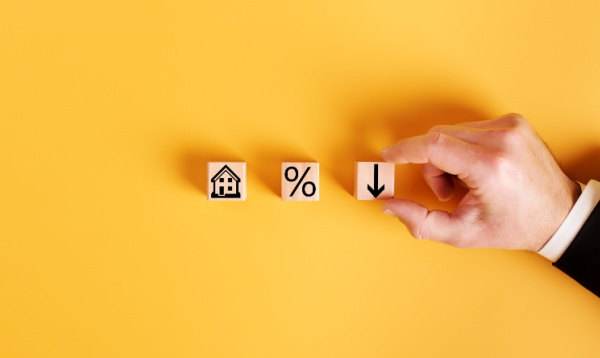The latest Halifax house price index showed that house prices have edged down for the fourth month in a row.
The bank reported a monthly fall of 0.3%, equivalent to a drop of around £1,000 in cash terms. The average UK home is now worth £285,044, 2.4% less than this time last year.
Halifax said that “in reality”, prices have changed “little” over the past six months, with the typical property costing £285,660 in February. It noted that the pace of annual decline has slowed to -2.4% in July, versus -2.6% in June, and said the housing market “continues to display a degree of resilience in the face of tough economic headwinds”.
Halifax Mortgages director Kim Kinnaird said:
“In particular, we’re seeing activity amongst first-time buyers hold up relatively well, with indications some are now searching for smaller homes, to offset higher borrowing costs. Conversely the buy-to-let sector appears to be under some pressure, though elevated interest rates are just one factor impacting landlords’ business models, together with considerations of future rental market reforms. It remains to be seen how many may choose to exit and what that could mean for the supply of properties available to buy.
“Prospects for the UK housing market remain closely linked to the performance of the wider economy. Several factors are providing support, notably strong wage growth, running at around +7% annually. And, while the uptick in unemployment is likely to restrain that somewhat, it seems unlikely to reach levels that would trigger a sharp deterioration in conditions.”
Interactive Investor senior personal finance analyst Myron Jobson said:
“Halifax and Nationwide aren’t singing from the same hymn sheet this month when it comes to house prices. Nationwide reported a fall in house prices at the fastest annual rate in 14 years, as higher interest rates hamper people’s ability to buy a property with a mortgage.
“The conflicting assessments is symptomatic of an uncertain market that continues to adjust to the new status quo of higher prices and higher mortgage rates. A collection of micro-markets remains at play. Estate agents have reported that a lack of supply in larger property have kept prices inflated, as the race for space theme continues to play out.
“For many, the decision to buy or not to buy hinges on where mortgage interest rates land. Inflation is still key to the direction of mortgage rates. Fixed mortgage rates dipped following the lower-than-expected fall in inflation in June before creeping higher ahead of the Bank of England’s latest interest rate hike. Inflation is expected to ease significantly in the coming months, led by a fall in energy costs – which could pull down mortgage rates in the process. Put simply, if inflation starts to move meaningfully lower, this takes the pressure off the Bank of England to continue raising interest rates, so mortgage rates could follow.”















